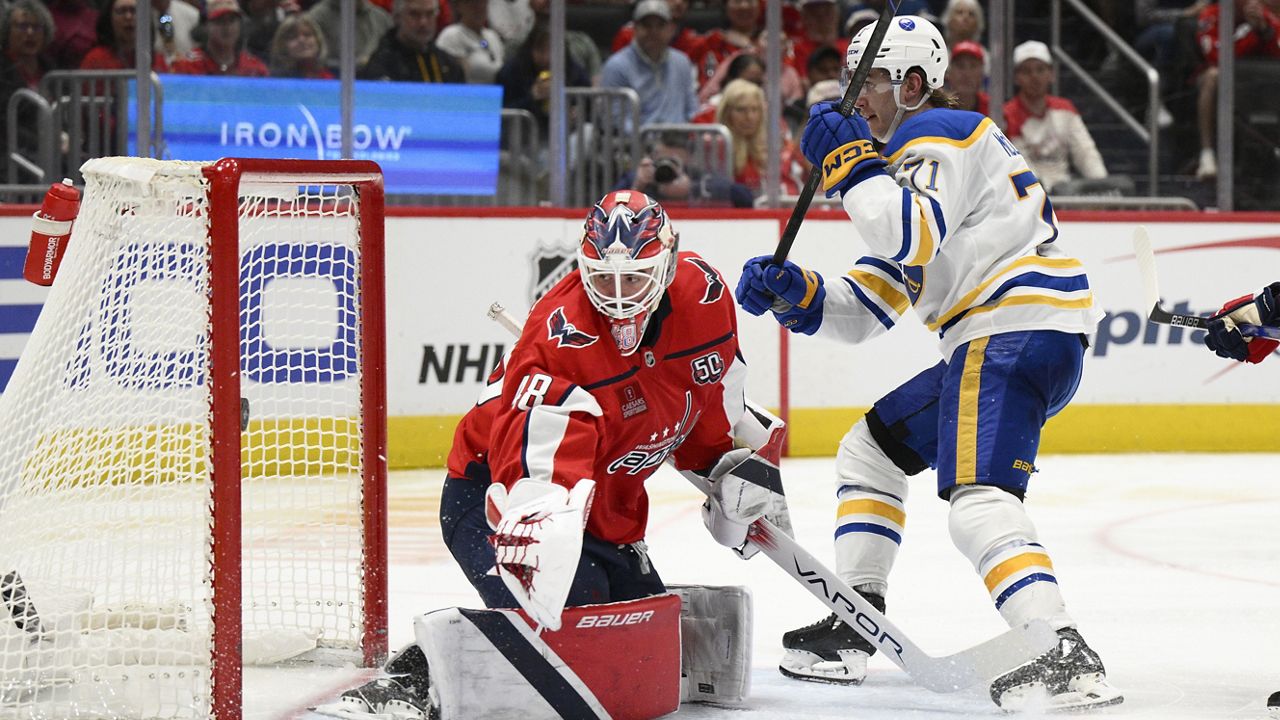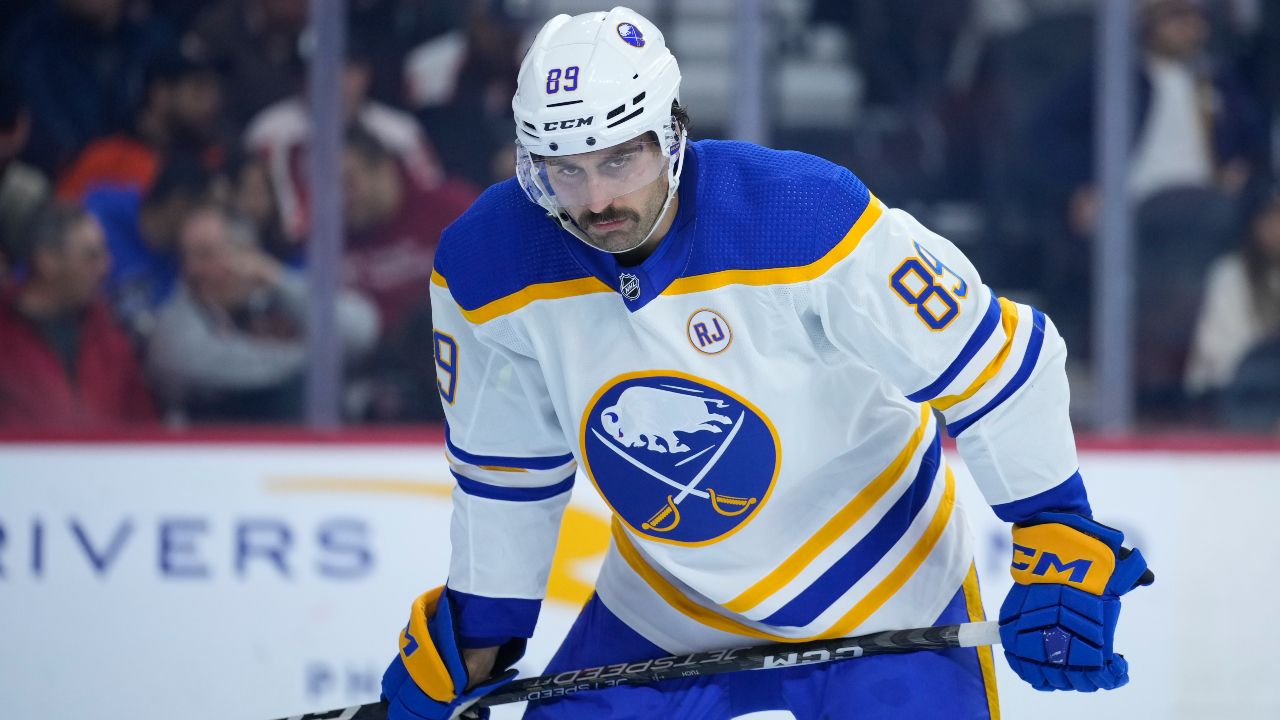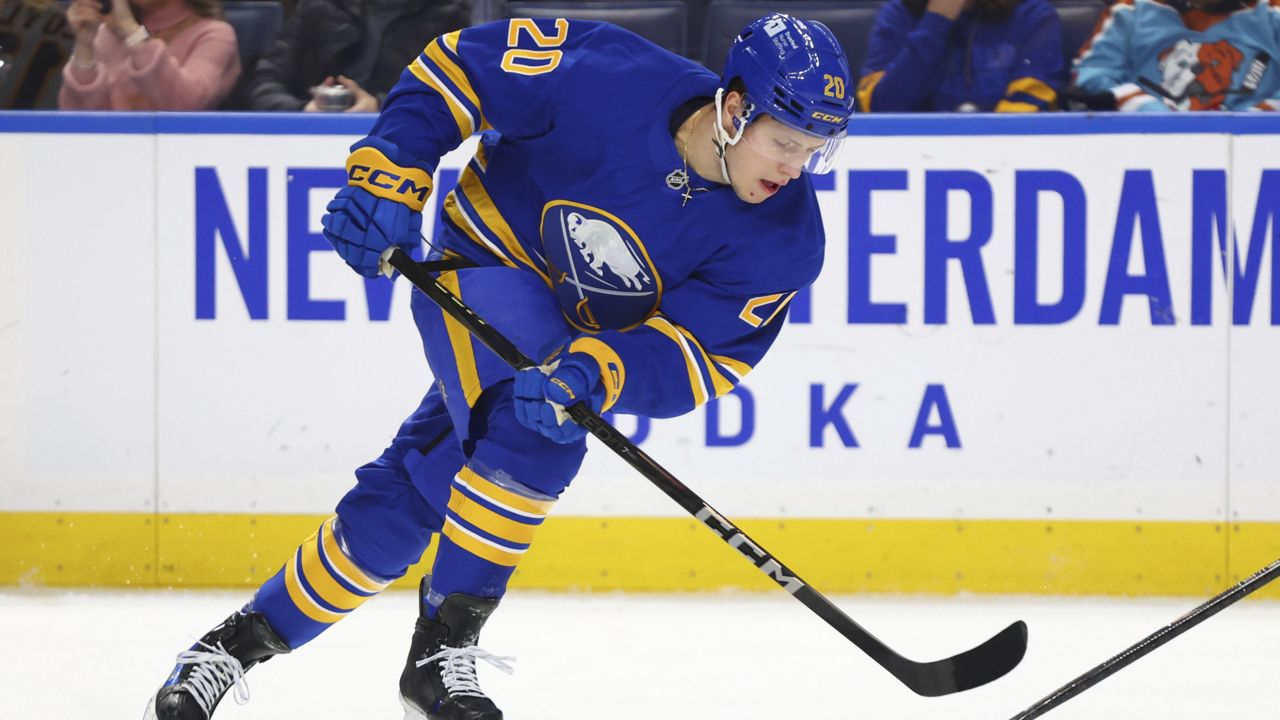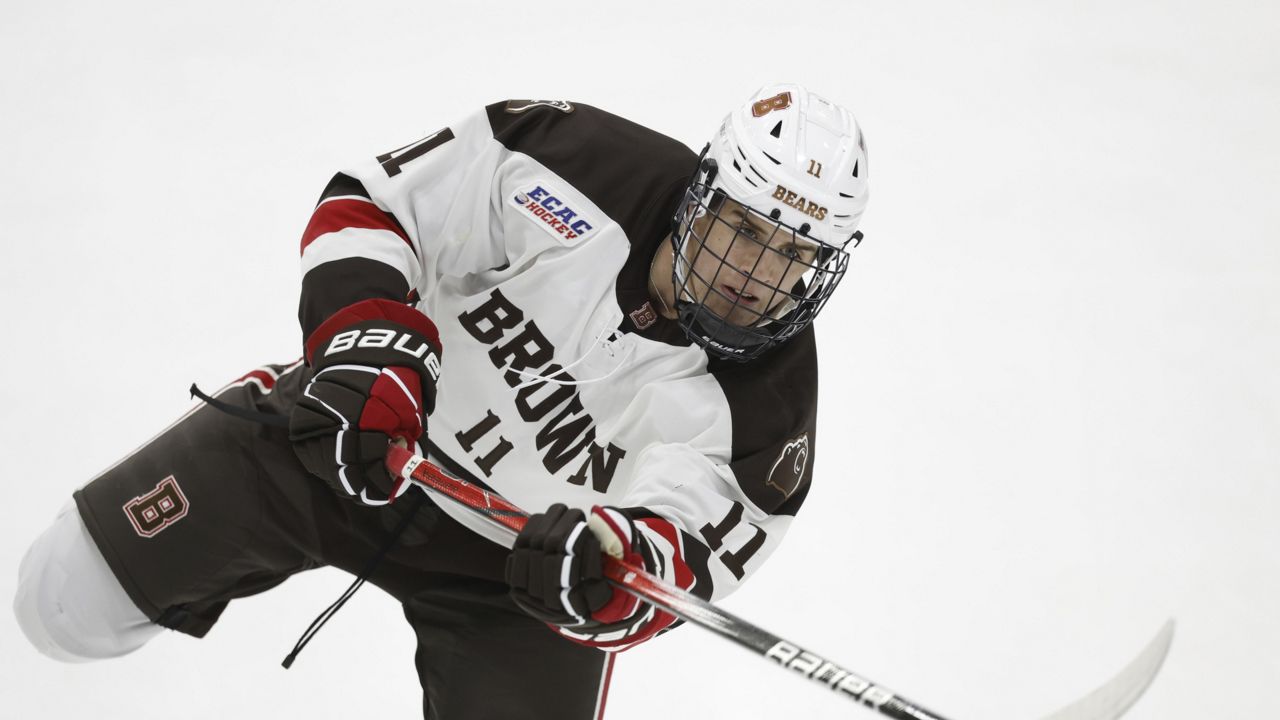BUFFALO, N.Y. — Even though it didn't end in a postseason run, the Buffalo Sabres did accomplish something that every player and team leader at the podium is proud of: what they say is an unwavering culture of brotherhood.
"I think this year, the culture definitely shifted," veteran Zemgus Girgensons said. "I had fun coming to the rink. I think the group is as tight as I've seen in a long time."
"The biggest thing was just being able to come to the rink every day and be yourself," forward Dylan Cozens said. "And that's on the older guys for allowing us to come to the rink and be ourselves as young guys and be who we are. It makes coming to the rink every day fun."
Toward the end of the season, it was clear that every player was indeed having fun at practice, multiple times even asking coaches to add more drills and scrimmages — a notable community attitude for a team missing their 11th consecutive postseason. But much like a petri dish in a laboratory, a culture like this can only thrive in an environment that allows for growth to flourish.
"It's a collective group, but it starts at the top,” forward Alex Tuch said. “It starts with the Pegulas and everything they've done for this organization, their work ethic and everything they've done to try and put people in the right positions in this organization, and those people putting a team together that really enjoys playing together.”
"If you can create an environment where people can come in every day and be authentic and be themselves, that now is you're putting them in a position to thrive," General Manager Kevyn Adams said.
Adams admitted at locker room cleanout that he promised himself that he would stay as true to his self as possible while manning the helm of the Sabres. That attitude blends seamlessly with Don Granato's coaching philosophy of letting the team play free, without fear of mistake, that players say allows so many of them to grow genuinely, true to their skillset and personalities.
"That's something that not a lot of people in the NHL talk about," Kyle Okposo said. "You think about basic psychology, that seems like a pretty good way to do it, right? Everybody's going to make mistakes in this business, and you guys are very quick to point out mistakes, of course, but everybody's going to make mistakes. So if you can, if you're able to get past that, then you're allowed to grow naturally as players."
Okposo, who donned the “A” this past season, thinks that Granato's coaching impact can be especially felt on the younger players on the team (which there are many).
"I think Donny, up front with everybody, says, 'go play hockey. You guys are good hockey players, you've played the game since you were this big, just go have fun,'" Tage Thompson, who had a breakout year with 38 goals, said. "You make a mistake, learn from it. If it keeps happening, then we're going to have to do something about it but I think for the most part, you let guys learn from their mistakes. It's not going to happen again. I think when you have that in the back of your mind going over the boards, 'I can make this play,' and then you make it, that gives you confidence to do it again. You see what works for you and what doesn't. You learn and grow. That's been great for everyone this year."
A specific element to Granato's coaching style in Buffalo so far includes an absence of harsh reprimands when players make mistakes.
"I remember I did some mistake against Seattle or something at home, but he [Granato] stood up for me," said defenseman Rasmus Dahlin, who tallied a career-high 53 points (13 goals, 40 assists) this season. "So, you know, it makes us players feel really good and makes us keep pushing. We want to succeed and we want to win for him."
Before joining the Sabres as an assistant coach in 2019, Granato spent 26 years coaching all facets of professional hockey, including the USHL, ECHL, AHL, NCAA and USA Hockey's National Team Development program. With a lengthy coaching resume, Granato takes an empathetic perspective in combination with his memories from playing the game to provide the leadership only he can for his players.
"I mean I was a player that loved the game, wanted to play in the NHL, and had some different experiences — great experiences in hockey and some not so great experiences in hockey — where you're just so passionate, you train so hard and you never get an opportunity in certain situations, and I know how that feels," Granato said. "I have a lot of respect for the players, the commitment and the demand that they're under."
As Granato is able to architect a coaching style that he may have liked to see when he took the ice, Adams is able to be the casually present and amicably approachable general manager he wished he had.
"When I got this job, I promised myself that I had to be me," Adams said.
"You're not always going to have the right answer. Sometimes in these jobs you think you have to have the right answer all the time or you have to be the smartest person. Just be honest and do the right thing. So for me, that's been the message to the players, is I'm going to ask you questions, and just be honest with me ... You have to be able to bring players in and really have that back and forth, honest dialogue. I think I would have appreciated that as a player, to have that type of relationship with the general managers."










